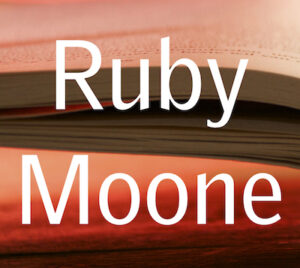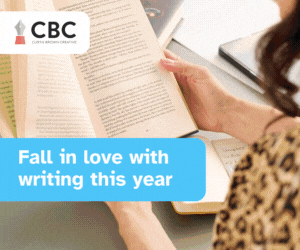Lucy Mitchell And The New Writers’ Scheme
1 October 2020
I’m delighted to welcome Lucy Mitchell to the blog today to talk about the NWS. Lucy has been talking to members of the RNA who graduated from the NSW to get their perspective. Lucy, can you tell us a little more about what you found?
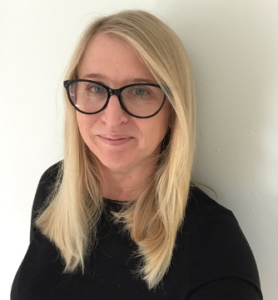 I’ve been a member of the Romantic Novelists Association’s New Writers’ Scheme (RNA NWS) since 2019. This scheme gives unpublished authors of romance and relationship driven fiction the chance to get a full manuscript critique from one of the RNA’s team of skilled readers. When I was offered the chance to do a guest blog post I couldn’t think of a better topic.
I’ve been a member of the Romantic Novelists Association’s New Writers’ Scheme (RNA NWS) since 2019. This scheme gives unpublished authors of romance and relationship driven fiction the chance to get a full manuscript critique from one of the RNA’s team of skilled readers. When I was offered the chance to do a guest blog post I couldn’t think of a better topic.
Two of my stories have been submitted via the scheme. I’ve enjoyed the entire process; submitting my manuscripts, the nail-biting wait for my Reader Report, trying to telepathically connect with my reader (this has never worked by the way) and doing the first read of my reader report behind the sofa, with my dog on hand for emotional support.
The feedback I’ve received has been constructive and has given me the chance to develop my stories further. In my experience the report has always been what my romance story needs and not what my writing ego needs.
Janet Gover, NWS Organiser, has kindly given me some facts about what goes on behind the scenes:
- Many of the readers are NWS graduates who are keen to give back to the system that helped them.
- The scheme allows members to submit a manuscript or a partial.
- The first manuscripts arrive in the first week of February.
- The scheme stays open until August – when Janet receives a huge influx of MS on the last day. She then takes two to three months to get them through the system, to have everything finished by December.
- There are guidelines to help readers with their reports.
- Applicants graduate from the NWS when they become a published author.
- Janet receives thank-you notes from new writers which she passes on to the hard-working readers.
For this post I have been fortunate enough to interview some fabulous NWS graduates on their experiences with the scheme and you might know them…
- Julie Cohen. Graduated 2003.
- Elaine Everest. Graduated 2013.
- Nikki Moore / Ella Allbright. Graduated 2013.
- Jules Wake. Graduated 2014.
- Emma Jackson. Graduated in 2019.
For me the NWS fun starts with uploading my manuscript onto the online portal. I make sure I have edited and formatted, in accordance with the guidelines, before pressing submit and blowing a kiss goodbye to my beloved piece of romantic fiction.
For some of the scheme’s graduates I interviewed their submission process looked very different. Julie Cohen, Elaine Everest and Jules Wake all talked about how they had to print out their entire manuscript, buy two padded envelopes, get the right number of stamps and take their manuscript down to the post office to send it. As I am typing this bit of my blog post I can hear my old printer breathing a sigh of relief. Technology has definitely made life easier for us on the scheme.
The next stage is the arrival of the Reader Report and reflecting on their feedback. I asked the graduates what they felt about their feedback and there was a good message running through all of the responses; persistence and hard work will one day pay off. Nikki Moore and Jules Wake both talked about this in their answers.
I think I will be printing off Nikki’s wise words regarding the feedback and pinning it above my desk. ‘Read the report a few times to digest the contents, and please don’t focus on what you perceive as negative – think of it as constructive criticism. The reader is trying to help you make your book the best it can be.’
I will say that Elaine Everest caught my attention with her honest reaction about reading her feedback for the first time. I can relate to reading my report and only seeing negative words. Elaine – I have been there and my husband has also has had to step in at times and highlight the positive stuff to me!
There was a lot of good advice for new and existing NWS members from the graduates.
Jules Wake has a brilliant mantra for all of us; ‘Learn your craft. Learn your craft. Learn your craft! Patience. Resilience.’
I loved Emma Jackson’s advice. ‘Try to find at least one or two writers (or more!) to share the bumps of the journey with. no one will understand the rollercoaster better and having that support will be invaluable. The RNA offers the perfect place to ‘find your tribe’.
I will finish this post with a piece of advice from Julie Cohen. ‘The only sure-fire way never to succeed as a writer, is never to finish the book.’
Thank you to all the authors who took time out of their busy schedules to let me interview them. I hope you have found this guest blog post useful.
My name is Lucy Mitchell and I WILL one day graduate from this amazing scheme.
I am also a keen romance book blogger and sometimes I blog about the craft of writing too.
Blog link: https://lucymitchellauthor.blog
Twitter: @LucyMitchAuthor
Lucy Mitchell was talking to Ruby Moone
Here are the interview questions and answers I used for this blog post.
Can you describe how you felt the first time you sent off your first manuscript? Nervous? Excited?
Julie Cohen
I was terrified! Back then you had to print out the entire manuscript, buy two padded envelopes and two sets of stamps, and put one envelope and one set of stamps in with the manuscript, so that the whole thing would be returned with your report.
Elaine Everest
Oh, my goodness I was a bag of nerves – more because of the process of printing off and posting the parcel of pages along with the right numbers of stamps etc.
Nikki Moore / Ella Allbright
Definitely more nervous than excited – I spent weeks both eagerly awaiting the postman’s arrival, whilst dreading it as the same time.
Jules Wake
It is so long ago now I was going to say I can’t remember but it came back to me, I remember telling the man in the post office, how important this package was and that I only just stopped myself from kissing it good luck before I handed it over!
Emma Jackson
It was very exciting! I don’t usually get nervous at the sending off point. It takes about a week or so for the nerves to kick in once it sinks in that someone is actually reading it.
What did you think of the feedback?
Julie Cohen
That first report, for that first flawed novel, was pretty honest. I think it complimented me on finishing a novel, and then there was exactly one compliment in the whole report—about a metaphor in chapter 4. The rest was well-deserved criticism. I could see right away that the report was correct—I’d learned a lot even in that short time—and I appreciated the honesty. Fortunately, I had moved on emotionally by then so I wasn’t crushed by the criticism—instead I was buoyed by it, because I knew I could do better.
Elaine Everest
I turned over the page and read – but could only see the negative words. My husband told me to not be so despondent and took a look. By then I was wailing that I was a failure and the reader must have laughed at my attempt to write a book – to be honest that has never changed! He then read out the positive words and the advice and I thought, ‘yeah, it’s not so bad. The person who wrote the report knows her stuff.’
Nikki Moore / Ella Allbright
All of my reports were breathtakingly honest – to the degree I used to wince and put them away for a few days before reading them again. They said pretty much the same thing; I had potential and would reach publishable standard if I kept going, but there was work to do first.
Jules Wake
I’ve been very fortunate, all of my reports, I have 8 in total (I got two reads in 2008 and 2012) have all been very positive and said that I could write and with persistence I would get there one day.
Emma Jackson
It was very encouraging and positive. The reader apologised for it being a short report, but they’d loved it and just had a few areas, mostly to do with the ending, that they felt needed some attention. It was extremely helpful.
With regards to the feedback on the book which helped you graduate from the NWS scheme – were there any lightbulb moments? Did it give you food for thought or did it give you some reassurance that you were on the right track?
Julie Cohen
The difference between my first report and my second report was enormous—my second report was for the fourth manuscript I’d written, and I’d got a LOT better in the interim. I don’t remember anything specific from it, but I do recall that it was very encouraging and picked up on some plot points that needed work. My third report, in 2004, I remember almost verbatim, because it was only a page long. The reader said, ‘I can’t teach you anything—in fact you can probably teach me.’ I’ve since discovered who that reader was, and it’s not true—they are an extremely accomplished author whose work I admire greatly—but wow, what a boost to get praise like that! I’ll never forget it.
Elaine Everest
I submitted that first book twice, and yes, I acted on the advice although one major suggestion was ignored. It sounds daft now, but I was advised to remove the main character’s dead mother (she was a ghost). I’d based the woman on my late mother so how could I bump her off?
Nikki Moore / Ella Allbright
The last report I received gave me the reassurance I needed that I was almost there. I needed to tighten the manuscript and think about pacing, but it was almost ready for publication. That gave me the confidence to book a 1:1 slot with Charlotte Ledger at the RNA Conference 2013.
Jules Wake
By that stage the book was in pretty good shape and even the reader said that the amends she suggested could all be fixed in a day! But … it was my fifth book and I’d got all the feedback from the previous reports to learn from. I think one of the big lightbulb moments was the need to really pin down my character’s motivation and their internal conflicts both of which feed into the character’s emotional journey.
Emma Jackson
Firstly, it gave me reassurance I was on the right track as I’d been in discussions with an agent who wanted me to change a lot of my novel and instinctively I hadn’t felt comfortable taking it in that direction. Having another professional opinion to draw upon really helped me to weigh up what I wanted to do. Secondly, the feedback I got coincided with many points in the editorial letter I received from my publisher, so I wasn’t overwhelmed and had already started thinking up ways to improve and polish the story
What advice would you give any new NWS members or existing NWS members?
Julie Cohen
Finish the book. Just finish it. And if you can’t finish it in time—send off a partial manuscript. Don’t waste the opportunity for some feedback. Sending off a manuscript is an achievement in itself, so celebrate! And then once you’ve received your report, read it and then let it sit for a while before you decide what to do about it.
The only sure-fire way never to succeed as a writer, is never to finish the book.
Elaine Everest
It sounds simple but keep writing and submit a manuscript EVERY year – even if you’ve only written a few chapters. Don’t ever feel you are alone with your writing. Even more so now the RNA is reaching out to writers and with just a laptop we don’t need to leave home to make friends with so many people.
Nikki Moore / Ella Allbright
Read the report a few times to digest the contents, and please don’t focus on what you perceive as negative – think of it as constructive criticism. The reader is trying to help you make your book the best it can be J Also think carefully about the advice that resonates with you, what feels ‘right’ in terms of your story, and what’s helpful to use. Above all, Keep Going. The only difference between a published and unpublished author is that the published one never gave up.
Jules Wake
Learn your craft. Learn your craft. Learn your craft! Patience. Resilience.
DON’T be tempted to rush out and self-publish your first book because you can’t get a deal or an agent with it.
Would you put the first cake you’d ever baked into the Great British Bake Off? Would you?
Emma Jackson
Try to find at least one or two writers (or more!) to share the bumps of the journey with. No one will understand the rollercoaster better and having that support will be invaluable. The RNA offers the perfect place to ‘find your tribe’.
Author Bios
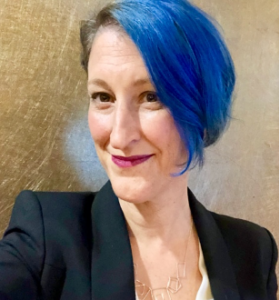 Julie Cohen
Julie Cohen
Julie Cohen grew up in Maine and studied English at Brown University, Cambridge University and the University of Reading. Her award-winning novels have sold over a million copies worldwide, and she has twice been selected for the Richard and Judy Book Club in the UK. Julie runs an oversubscribed literary consultancy which has helped many writers go on to be published. She is a Vice President of the Romantic Novelists’ Association, founder of the RNA Rainbow Chapter, and a Patron of literacy charity ABC To Read. Her bestselling novel TOGETHER has been translated into eleven languages and optioned for television adaptation; THE TWO LIVES OF LOUIS & LOUISE was long-listed for the Polari Prize and has been optioned by Enderby Entertainment as a feature film. Her first historical novel, SPIRITED, was published in July 2020. She lives in Berkshire with her family and a terrier of dubious origin.
Twitter: @julie_cohen
 Nikki Moore / Ella Allbright
Nikki Moore / Ella Allbright
A self-confessed reading addict, Ella Allbright writes commercial women’s fiction set in her beautiful home county of Dorset. Her first novel in this genre, The Last Charm, was published in August 2020 by One More Chapter, an imprint of HarperCollins. Ella is represented by agent Hattie Grünewald at The Blair Partnership.
Ella also writes as Nikki Moore, the author of the popular #LoveLondon romance series. A number of the novellas featured in the Top 100 short story charts on Kobo and the Top 20 in the Amazon UK bestsellers Holiday chart, and in 2018 the collection was released in Italy. Her first published work was the short story A Night to Remember in the bestselling Mills & Boon / RNA anthology Truly, Madly, Deeply. Her debut romance Crazy, Undercover, Love was shortlisted for the RNA Joan Hessayon Award 2015.
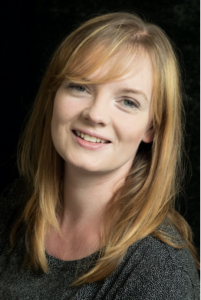 Emma Jackson
Emma Jackson
Author of the Best Selling A MISTLETOE MIRACLE and contender for the Joan Hessayon Award 2020, Emma has been a devoted bookworm and secret-story-scribbler since she was 6 years old. When she’s not running around after her two daughters and trying to complete her current work-in-progress, Emma loves to read, bake, catch up on binge-watching TV programmes with her partner and plan lots of craft projects that will inevitably end up unfinished. Her latest romantic comedy, SUMMER IN THE CITY, was released in June 2020.
You can find out news about Emma via her website, by signing up to her newsletter at www.esjackson.co.uk or on:
Twitter @ESJackson1
Facebook @EmmaJacksonAuthor
Instagram @emma_s_jackson
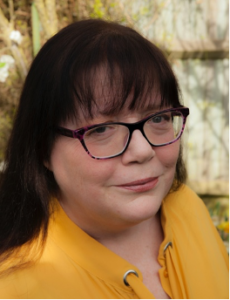 Elaine Everest.
Elaine Everest.
Author of the bestselling novel The Woolworths Girls and The Butlins Girls was born and brought up in North West Kent, where many of her books are set. She has been a freelance writer for twenty years and has written widely for women’s magazines and national newspapers, with both short stories and features.
Website:
www.elaineeverest.com
Twitter: @elaineeverest
Facebook: Elaine Everest Author
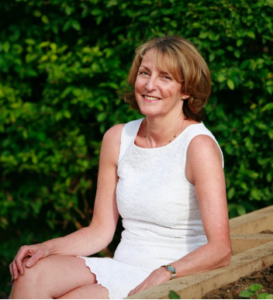 Jules Wake
Jules Wake
Jules Wake announced at the age of ten that she planned to be a writer. Along the way she was diverted by the glamorous world of PR and worked on many luxury and not so luxury brands. This proved fabulous training for writing novels as it provided her with the opportunity to hone her creative writing skills penning copy on a vast range of subjects from pig farming and watches, sunglasses and skincare through to beer, wine and stationery, much of which has provided useful background in her stories.
She writes best-selling warm-hearted romantic contemporary fiction for One More Chapter as Jules Wake and under her pen name Julie Caplin, she writes the warm and witty Romantic Escapes series.
Between them, the two Js have written fifteen novels, The Saturday Morning Park Run being the latest.
Lucy Mitchell was talking to Ruby Moone.
